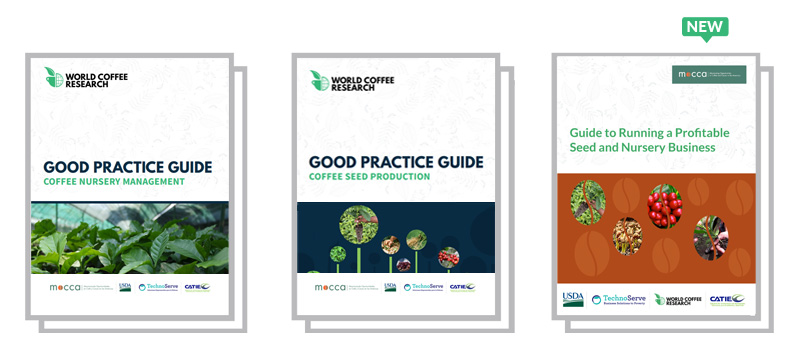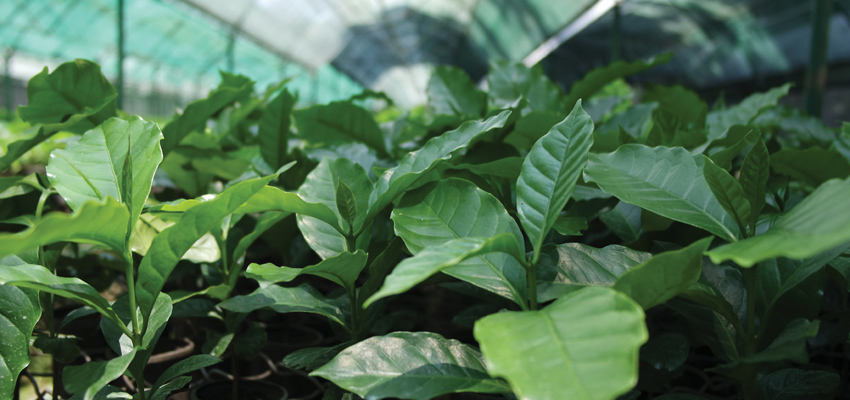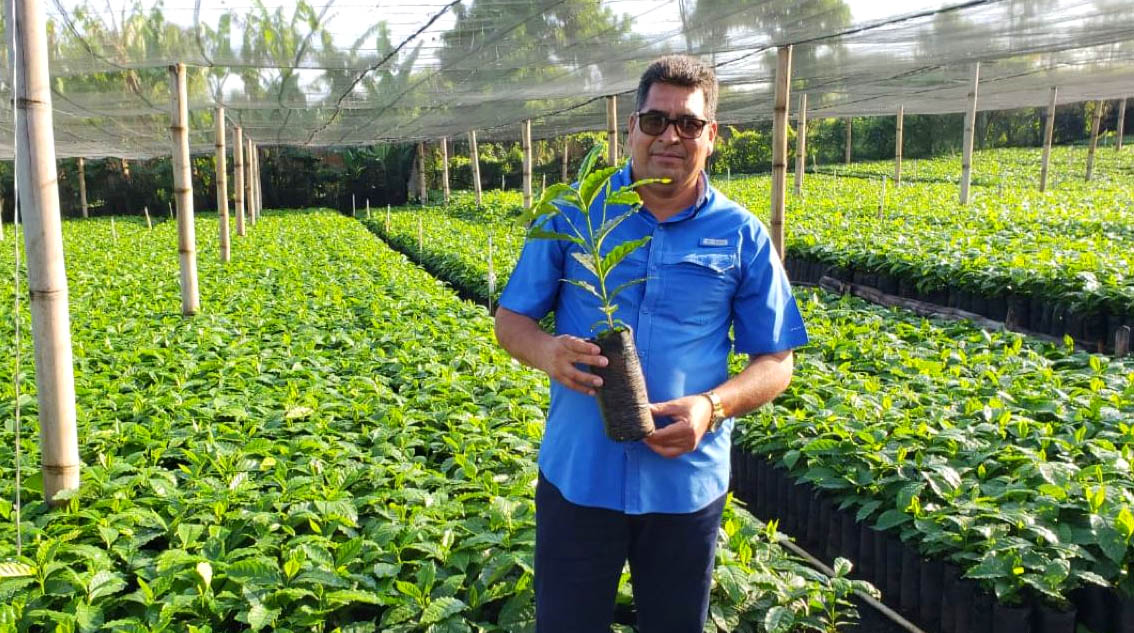A new guide supports nurseries to find entrepreneurial success.
There is growing awareness that coffee farmers worldwide struggle to access high quality plants. A set of three newly completed guides provides seed and nursery producers with knowledge to support their professionalization. The guides include newly revised technical manuals and a brand-new guide to profitable business management, which together support nurseries to succeed financially as well as to produce high quality plants.
The guides can be accessed freely online at worldcoffeeresearch.org/guias and are available in both English and Spanish.
Addressing a hidden crisis
The new and revised guides are the latest broad effort by partners in Latin America to address a hidden crisis in the coffee sector: A worldwide lack of skilled systems for delivering high quality, healthy planting material to coffee farmers. Most seed lots and nurseries struggle to produce healthy plants and run profitable enterprises. Additionally, recent analyses from World Coffee Research showed that less than 25% of coffee seeds produced by seed sellers were genetically pure.

The newest guide, in particular, is intended to train business operators to develop their business acumen and achieve financial stability. The guide was created by the USDA-funded Maximizing Opportunities in Coffee and Cacao in the Americas (MOCCA) Program, a five-year initiative implemented by a consortium led by TechnoServe. MOCCA consortium member World Coffee Research (WCR) developed the guide, in alliance with the Sustainable Economy, Environment and Agribusiness Unit (UEAAS) of the Tropical Agronomic Center of Research and Teaching (CATIE).
“With each poor-quality seedling planted in their fields, farmers lock in lower production potential for decades to come,” says WCR CEO Vern Long, “and this powerfully reinforces the ‘poverty trap’ faced by smallholder farmers in particular. Improving nursery production practices has the potential to dramatically improve the productivity and profitability of coffee farms globally and to ensure that the genetic gains coming from new/improved varieties are able to reach farmers.”
“Supporting seed producers and nursery operators to more profitably produce high quality planting material is vital for coffee market systems in the countries MOCCA operates in. We have set an ambitious target of strengthening over 600 small, medium, and large coffee nursery operators, so that the farmers they supply can access healthier and more productive plants. This guide is a useful tool seed suppliers and nursery operators can utilize to improve their operations, and better serve their customers in coffee-growing communities,” says Ryan Bathrick, MOCCA’s Chief of Party.

Healthy, pure plants + entrepreneurial success
The revised and new training guides focus on supporting seed and plant producers to make improvements toward three essential goals:
- Improving plant health — strong seedlings reach their maximum potential yield with a minimum mortality rate
- Improving genetic purity — farmers may be confident they are planting the correct variety, with no risk of cross-pollination or compromised performance
- Improving financial performance – successful entrepreneurial seed businesses are able support wider farmer access to good plants
Reviews of the guides were conducted from experts from across Central America.
Reducing farmer risk
Effective systems convey high quality seedlings developed by breeders (typically with improved performance) to farmers, who are able to turn that potential into increased profits. In practice today, much of the potential of better varieties leaks out of these pipelines before ever reaching farmers. Good quality plants can create a virtuous cycle of improved productivity—high quality, vigorous trees can catalyze farmers to make additional investments in productivity. Supporting nurseries to produce healthier trees reduces the risk coffee farmers face when buying seed/seedlings and “locks in” the gains to farmers of planting a healthy tree across the life of that tree.
—
For more information about World Coffee Research and its programs, please visit worldcoffeeresearch.org
Press Contact: Hanna Neuschwander, Communications Director
Email: hanna@worldcoffeeresearch.org
Twitter: @WCoffeeResearch







